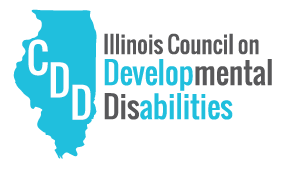Identity theft can happen to anyone, but there are ways you can reduce the risk of your identity being stolen and prevent fraud and scams.
Some warning signs that your identity may have been stolen include finding unfamiliar charges on your credit card, having medical providers bill you for services you did not use or if the IRS notifies you that more than one tax return was filed in your name.
If you think your identity has been compromised, act quickly to protect your money, benefits and access to services such as health care! Be sure to close accounts that have been tampered with or opened fraudulently. You can call the Identity Theft Hotline at 1-877-ID-THEFT or file a complaint online with the Federal Trade Commission (FTC) to tell them what happened and to place a fraud alert on your credit reports.
A fraud alert lets creditors know your ID has been stolen and they will set up a password for you to use when contacting them; a credit freeze stops people from being able to use your credit file to get new credit in your name. To learn more about fraud alerts and credit freezes visit the Federal Trade Commission (FTC).
Consumers can easily report fraud or bad business practices through the Federal Trade Commission website. The FTC encourages consumers to report these issues when they encounter them, whether or not they lose money to the fraud. You can use the National Center for Disaster Fraud (NCDF) Hotline (1-866-720-5721) to report any fraud related to COVID-19 (Coronavirus) or use the NDCF Web Complaint Form.
Another step to take is to immediately contact any one of the three credit bureaus — Equifax, Experian or TransUnion. The credit bureau you contact must tell the other two to place a fraud alert on your credit report. A fraud alert may be posted with all three credit reporting bureaus for one year. After one year, the fraud alert will need to be renewed.
Unfortunately, there are people out there trying to take advantage of individuals during the ongoing pandemic. Scams cover a wide spectrum including testing, contact tracing, promises of personal protective equipment, stimulus payments and more. The FTC has put together numerous tips to help you avoid scams during the pandemic.
Be sure to review your Medicare Summary Notices for errors and report anything suspicious to Medicare. If you think a charge is incorrect, and you know the provider, you may want to call their office to ask about it. The person you speak to may help you better understand the services or supplies you got, or they may realize a billing error was made. If you contact the provider and suspect that Medicare is being charged for health care you didn’t get, or you don’t know the provider on the claim, find out how to report fraud.
Employers and claimants can both commit fraud under state unemployment insurance laws. Employer fraud can include certain actions to avoid tax liability. Claimant fraud can include someone knowingly submitting false information or intentionally not reporting wages or income while collecting full benefits. Learn how to report unemployment insurance fraud.
If you are a guardian or have financial power of attorney for someone, you can help them if they’ve been a victim of fraud. Contact one of the three credit bureaus and place a fraud alert on the person’s account with the person actively participating, to their ability.
A fraud alert lets creditors know your ID has been stolen and will make it harder for someone to open a new credit account in your name. A business must verify your identity before it issues new credit in your name. When you place a fraud alert on your credit report, you can get a free copy of your credit report from each of the three credit bureaus helping you to dispute any incorrect information. Through April 2022, the FTC is offering free weekly credit reports.
Lastly, you can contact the Illinois Attorney General’s office to report fraud through its Consumer Protection Division. Publications on identity theft are offered in both English and Spanish.
In partnership with the Illinois Council on Developmental Disabilities. This communication is supported in part by grant number CFDA 93.630 from the U.S. Administration for Community Living, Department of Health and Human Services, Washington, D.C. 20201. Grantees undertaking projects with government sponsorship are encouraged to express freely their findings and conclusions. Points of view or opinions do not, therefore, represent official ACL policy.

